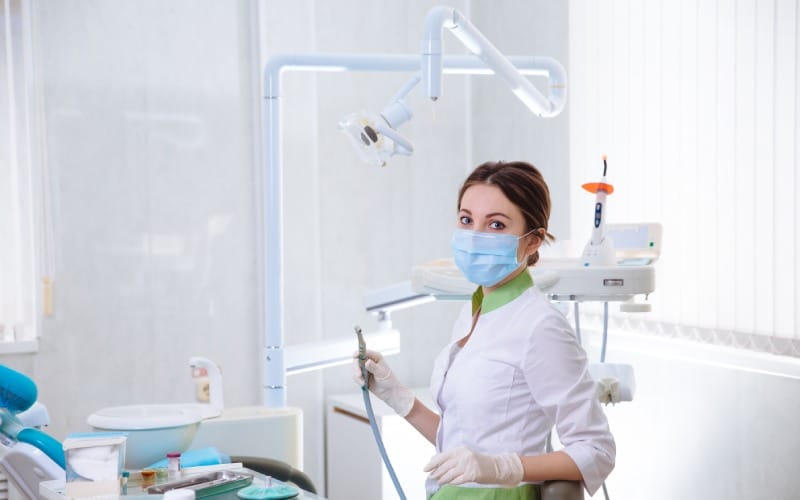Undergoing sedation dentistry in Fairfield, ME, can be a life-changing experience, allowing patients to overcome dental anxiety and receive necessary care. However, to ensure a smooth and successful procedure, proper preparation and aftercare are crucial. Sedation dentists emphasize the importance of pre- and post-sedation guidelines to guarantee a comfortable and stress-free experience.
From preparing your home environment to managing potential side effects, a comprehensive approach to sedation dentistry prioritizes patient safety and well-being. By following expert guidance, patients can minimize recovery time, optimize results, and enjoy a healthier, happier smile.
What Does The Preparation Before Sedation Dentistry Involve?
Preparation before sedation dentistry involves the following:
Medical Preparation
- Provide Medical History: Share medical history, including allergies, medications, and health conditions.
- Consult Physician: Consult primary care physician or specialist, if necessary.
- Laboratory Tests: Order laboratory tests (e.g., blood work, ECG), if required.
- Medication Adjustment: Adjust medications, if necessary, under physician guidance.
Dietary Preparation
- Fasting Instructions: Follow fasting instructions, typically 6-8 hours before sedation.
- Avoid Heavy Meals: Avoid heavy meals and greasy foods 24 hours prior.
- Hydration: Stay hydrated, avoiding excessive caffeine and alcohol.
Lifestyle Preparation
- Transportation: Arrange transportation to and from the appointment.
- Companion: Bring a responsible adult companion.
- Recovery Time: Schedule sufficient recovery time (typically 24 hours).
- Work/School: Plan time off work or school, if necessary.
Home Preparation
- Comfortable Environment: Create a comfortable recovery environment.
- Soft Foods: Stock up on soft, easy-to-eat foods.
- Medications: Have prescribed medications readily available.
- Emergency Contact: Inform emergency contacts of the sedation schedule.
Emotional Preparation
- Relaxation Techniques: Practice relaxation techniques (e.g., deep breathing, meditation).
- Anxiety Management: Discuss anxiety concerns with your dentist.
- Positive Attitude: Maintain a positive attitude toward sedation dentistry.
Additional Tips
- Avoid Smoking: Refrain from smoking 24 hours prior.
- Avoid Electronic Devices: Avoid electronic devices during recovery.
- Follow Instructions: Adhere to dentist-provided instructions.

What Does Aftercare Post-Sedation Dentistry Involve?
Following sedation dentistry, patients should:
- Rest and Relaxation: Rest for the remainder of the day, avoiding strenuous activities.
- Monitor Vital Signs: Monitor temperature, pulse, and blood pressure.
- Manage Discomfort: Follow pain management instructions provided by the dentist.
- Maintain Hydration: Drink plenty of water and avoid hot liquids.
- Avoid Operating Machinery: Refrain from operating heavy machinery or driving for 24 hours.
Immediate Post-Sedation Care
Immediately after sedation dentistry:
- Recovery Room: Spend time in the recovery room under observation.
- Oxygen Saturation Monitoring: Continuously monitor oxygen saturation.
- Vital Sign Monitoring: Continuously monitor vital signs.
- Emergency Preparedness: Ensure emergency equipment and personnel are available.
Short-Term Aftercare (24-48 hours)
In the first 24-48 hours after sedation dentistry:
- Soft Food Diet: Follow a soft food diet to avoid discomfort.
- Avoid Strenuous Activities: Avoid heavy lifting, bending, or exercise.
- Manage Swelling: Apply ice packs to reduce swelling.
- Follow Medication Instructions: Adhere to medication schedules.
Long-Term Aftercare
In the days and weeks following sedation dentistry:
- Follow-Up Appointments: Attend scheduled follow-up appointments.
- Oral Hygiene: Maintain good oral hygiene habits.
- Monitor Healing: Watch for signs of complications or delayed healing.
- Communicate with Your Dentist: Report any concerns or issues.
Bottom Line
Proper preparation and aftercare are crucial components of a successful sedation dentistry experience. By following pre-sedation guidelines and post-sedation care instructions, patients can minimize risks, optimize results, and enjoy a smoother recovery. From medical and dietary preparation to emotional support and lifestyle adjustments, every step plays a vital role in ensuring a comfortable and stress-free experience. Dentists prioritize patient safety and well-being, providing personalized guidance and care throughout the sedation dentistry process. By taking the necessary steps before and after sedation dentistry, patients can reclaim their oral health, overcome dental anxiety, and unlock a healthier, happier smile.

